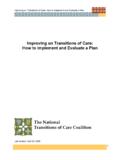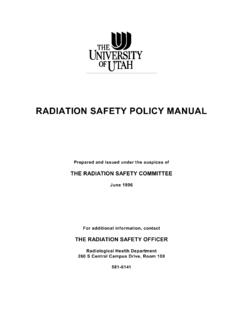Transcription of MULTILATERAL CONVENTION TO IMPLEMENT …
1 MULTILATERAL CONVENTION TO IMPLEMENT TAX TREATY RELATED MEASURES TO PREVENT BASE EROSION AND PROFIT SHIFTING 1 The Parties to this CONVENTION , Recognising that governments lose substantial corporate tax revenue because of aggressive international tax planning that has the effect of artificially shifting profits to locations where they are subject to non-taxation or reduced taxation; Mindful that base erosion and profit shifting (hereinafter referred to as BEPS ) is a pressing issue not only for industrialised countries but also for emerging economies and developing countries; Recognising the importance of ensuring that profits are taxed where substantive economic activities generating the profits are carried out and where value is created; Welcoming the package of measures developed under the OECD/G20 BEPS project (hereinafter referred to as the OECD/G20 BEPS package ); Noting that the OECD/G20 BEPS package included tax treaty-related measures to address certain hybrid mismatch arrangements, prevent treaty abuse, address artificial avoidance of permanent establishment status, and improve dispute resolution.
2 Conscious of the need to ensure swift, co-ordinated and consistent implementation of the treaty-related BEPS measures in a MULTILATERAL context; Noting the need to ensure that existing agreements for the avoidance of double taxation on income are interpreted to eliminate double taxation with respect to the taxes covered by those agreements without creating opportunities for non-taxation or reduced taxation through tax evasion or avoidance (including through treaty-shopping arrangements aimed at obtaining reliefs provided in those agreements for the indirect benefit of residents of third jurisdictions); Recognising the need for an effective mechanism to IMPLEMENT agreed changes in a synchronised and efficient manner across the network of existing agreements for the avoidance of double taxation on income without the need to bilaterally renegotiate each such agreement; Have agreed as follows: 2 PART I.
3 SCOPE AND INTERPRETATION OF TERMS Article 1 Scope of the CONVENTION This CONVENTION modifies all Covered Tax Agreements as defined in subparagraph a) of paragraph 1 of Article 2 (Interpretation of Terms). Article 2 Interpretation of Terms 1. For the purpose of this CONVENTION , the following definitions apply: a) The term Covered Tax Agreement means an agreement for the avoidance of double taxation with respect to taxes on income (whether or not other taxes are also covered): i) that is in force between two or more: A) Parties; and/or B) jurisdictions or territories which are parties to an agreement described above and for whose international relations a Party is responsible; and ii) with respect to which each such Party has made a notification to the Depositary listing the agreement as well as any amending or accompanying instruments thereto (identified by title, names of the parties, date of signature, and, if applicable at the time of the notification, date of entry into force) as an agreement which it wishes to be covered by this CONVENTION .
4 B) The term Party means: i) A State for which this CONVENTION is in force pursuant to Article 34 (Entry into Force); or ii) A jurisdiction which has signed this CONVENTION pursuant to subparagraph b) or c) of paragraph 1 of Article 27 (Signature and Ratification, Acceptance or Approval) and for which this CONVENTION is in force pursuant to Article 34 (Entry into Force). c) The term Contracting Jurisdiction means a party to a Covered Tax Agreement. d) The term Signatory means a State or jurisdiction which has signed this CONVENTION but for which the CONVENTION is not yet in force. 2. As regards the application of this CONVENTION at any time by a Party, any term not defined herein shall, unless the context otherwise requires, have the meaning that it has at that time under the relevant Covered Tax Agreement.
5 3 PART II. HYBRID MISMATCHES Article 3 - Transparent Entities 1. For the purposes of a Covered Tax Agreement, income derived by or through an entity or arrangement that is treated as wholly or partly fiscally transparent under the tax law of either Contracting Jurisdiction shall be considered to be income of a resident of a Contracting Jurisdiction but only to the extent that the income is treated, for purposes of taxation by that Contracting Jurisdiction, as the income of a resident of that Contracting Jurisdiction. 2. Provisions of a Covered Tax Agreement that require a Contracting Jurisdiction to exempt from income tax or provide a deduction or credit equal to the income tax paid with respect to income derived by a resident of that Contracting Jurisdiction which may be taxed in the other Contracting Jurisdiction according to the provisions of the Covered Tax Agreement shall not apply to the extent that such provisions allow taxation by that other Contracting Jurisdiction solely because the income is also income derived by a resident of that other Contracting Jurisdiction.
6 3. With respect to Covered Tax Agreements for which one or more Parties has made the reservation described in subparagraph a) of paragraph 3 of Article 11 (Application of Tax Agreements to Restrict a Party s Right to Tax its Own Residents), the following sentence will be added at the end of paragraph 1: In no case shall the provisions of this paragraph be construed to affect a Contracting Jurisdiction s right to tax the residents of that Contracting Jurisdiction. 4. Paragraph 1 (as it may be modified by paragraph 3) shall apply in place of or in the absence of provisions of a Covered Tax Agreement to the extent that they address whether income derived by or through entities or arrangements that are treated as fiscally transparent under the tax law of either Contracting Jurisdiction (whether through a general rule or by identifying in detail the treatment of specific fact patterns and types of entities or arrangements) shall be treated as income of a resident of a Contracting Jurisdiction.
7 5. A Party may reserve the right: a) for the entirety of this Article not to apply to its Covered Tax Agreements; b) for paragraph 1 not to apply to its Covered Tax Agreements that already contain a provision described in paragraph 4; c) for paragraph 1 not to apply to its Covered Tax Agreements that already contain a provision described in paragraph 4 which denies treaty benefits in the case of income derived by or through an entity or arrangement established in a third jurisdiction; d) for paragraph 1 not to apply to its Covered Tax Agreements that already contain a provision described in paragraph 4 which identifies in detail the treatment of specific fact patterns and types of entities or arrangements; e) for paragraph 1 not to apply to its Covered Tax Agreements that already contain a provision described in paragraph 4 which identifies in detail the treatment of specific fact patterns and types of entities or arrangements and denies treaty benefits in the case of income derived by or through an entity or arrangement established in a third jurisdiction; 4 f) for paragraph 2 not to apply to its Covered Tax Agreements.
8 G) for paragraph 1 to apply only to its Covered Tax Agreements that already contain a provision described in paragraph 4 which identifies in detail the treatment of specific fact patterns and types of entities or arrangements. 6. Each Party that has not made a reservation described in subparagraph a) or b) of paragraph 5 shall notify the Depositary of whether each of its Covered Tax Agreements contains a provision described in paragraph 4 that is not subject to a reservation under subparagraphs c) through e) of paragraph 5, and if so, the article and paragraph number of each such provision. In the case of a Party that has made the reservation described in subparagraph g) of paragraph 5, the notification pursuant to the preceding sentence shall be limited to Covered Tax Agreements that are subject to that reservation.
9 Where all Contracting Jurisdictions have made such a notification with respect to a provision of a Covered Tax Agreement, that provision shall be replaced by the provisions of paragraph 1 (as it may be modified by paragraph 3) to the extent provided in paragraph 4. In other cases, paragraph 1 (as it may be modified by paragraph 3) shall supersede the provisions of the Covered Tax Agreement only to the extent that those provisions are incompatible with paragraph 1 (as it may be modified by paragraph 3). Article 4 Dual Resident Entities 1. Where by reason of the provisions of a Covered Tax Agreement a person other than an individual is a resident of more than one Contracting Jurisdiction, the competent authorities of the Contracting Jurisdictions shall endeavour to determine by mutual agreement the Contracting Jurisdiction of which such person shall be deemed to be a resident for the purposes of the Covered Tax Agreement, having regard to its place of effective management, the place where it is incorporated or otherwise constituted and any other relevant factors.
10 In the absence of such agreement, such person shall not be entitled to any relief or exemption from tax provided by the Covered Tax Agreement except to the extent and in such manner as may be agreed upon by the competent authorities of the Contracting Jurisdictions. 2. Paragraph 1 shall apply in place of or in the absence of provisions of a Covered Tax Agreement that provide rules for determining whether a person other than an individual shall be treated as a resident of one of the Contracting Jurisdictions in cases in which that person would otherwise be treated as a resident of more than one Contracting Jurisdiction. Paragraph 1 shall not apply, however, to provisions of a Covered Tax Agreement specifically addressing the residence of companies participating in dual-listed company arrangements.
















